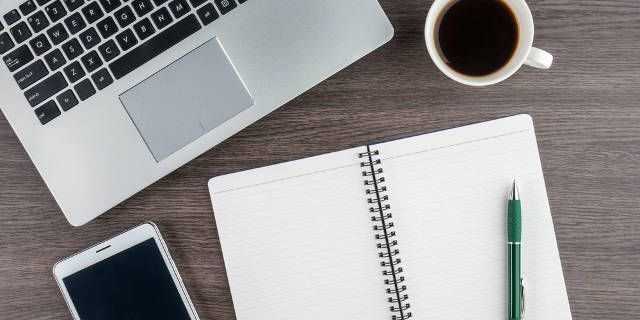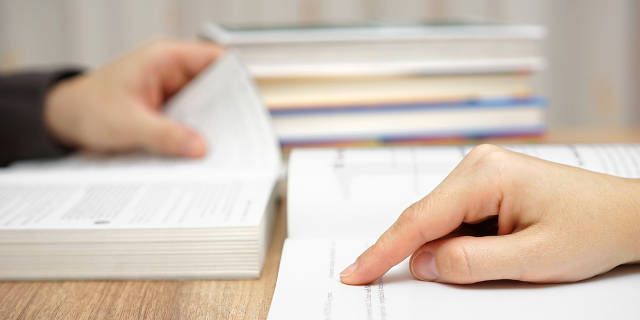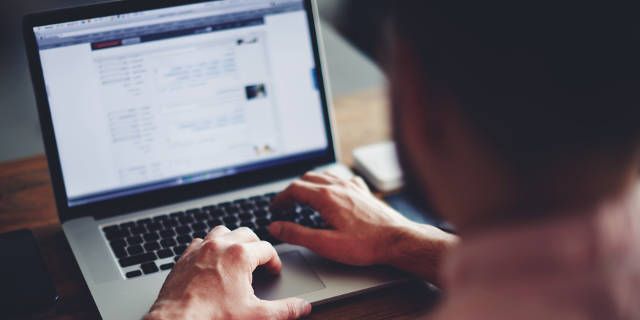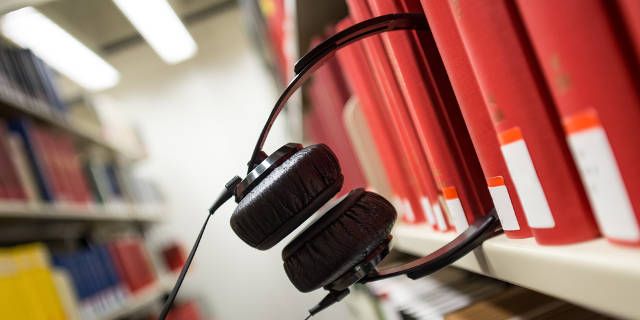Not everyone is a fast learner. Some people can swallow new topics in mere hours, but for the rest of us, learning can be a painful and arduous task -- so much so that it makes us not want to try anymore. It can happen to the best of us.
But here's the good news: it's not too late for you to become a fast learner!
This isn't a new topic for us. In the past we've explored using technology to improve study habits, building the right kind of online study skills, and even how technology will transform future classrooms. Continued education is important no matter who you are or where you are in life.
But how do you learn effectively? What can you do to minimize the amount of wasted time and maximize the amount of knowledge you retain? Here are several useful tips, tricks, and tools that we've picked up over the years.
Engage the Material by Taking Notes
Notes play a major role in the learning process. Empirical studies have been conducted on the subject as far back as the 1920s, and the results are consistently the same: taking notes is always better than not taking notes.
According to an overview of studies by Jeff Beecher, several different researchers said the following about taking notes:
[C. C. Crawford] concluded that taking notes was better than not taking notes, that reviewing notes was a key to their impact, and that organizing notes effectively contributes to improved performance on tests.
[Paul McClendon] used taped lectures and concluded that note-taking doesn't interfere with listening, that no particular note-taking method is best, and that students might as well record as much as possible during note-taking.
[Michael Howe] concluded that students were seven times more likely to recall information one week after it was presented if the information had been recorded in their notes. Howe argued that "the activity of note writing per se makes a contribution to later retention..."
The primary benefits are two-fold: First, notes act as a reference for when you've forgotten material, and second, the actual act of note-taking improves the chance that you'll retain the knowledge of what was written down.
And according to McClendon, the method of note-taking makes no difference. Some may argue that handwritten notes are more likely to commit to memory than typed notes, but everyone agrees that either method is better than no notes at all.
As such, we recommend that you check out our guide to effective digital note-taking. It contains everything you'd need to know about the hardware, software, and techniques that will improve your note-taking skills overnight.
Employ Techniques to Improve Memory
While note-taking is so crucial that it cannot be overlooked, there are several other techniques that will help improve your ability to commit knowledge to memory (and thus improve your rate of learning new material).
The first technique is called active recall, also known as practice testing, which are both fancy terms for an oft-used learning method that many of us have already used at some point or another. The concept is simple: keep exposing yourself to question-answer pairs until it gets burned into your memory.
This technique is often supplemented by flash cards, and flash cards are tried and true. Don't brush them aside just because they seem overly mundane, simple, or familiar -- flash cards have been proven to improve memory rates:
Other learning techniques such as taking practice tests ... were found to be of high utility because they benefited students of many different ages and ability levels and enhanced performance in many different areas.
We recommend using an online flash card tool whenever possible, though you'd probably be fine with mobile flash card apps instead. We also recommend FullRecall, which is an effective memory aid tool that's built on the concept of active recall.
Another important technique is spaced repetition, also known as distributed practice, which is one of the most effective techniques known to us today. In fact, we consider it to be more important than note-taking and active recall combined. That's how good it works.
Spaced repetition is the exact opposite of cramming. Instead of waiting until some deadline to review everything you've learned up to that point in one big chunk, spaced repetition is about repeated review of material over a long period of time:
You are most likely to remember something later if you repeat it using spaced repetitions. This means that you repeat the information over and over, but you put some time in between the repetitions.
Studies have shown that spaced repetition is an effective way to learn many different types of information. ... With some assistance from family members, people with severe memory disorders like Alzheimer’s disease can be taught new names using spaced repetition.
For more on this, check out our exploration of spaced repetition and how you can use it to improve your own memory.
Consult as Many Resources as You Can
If you want to learn something as quickly as possible, learn it from as many people as you can. Nobody is a perfect teacher. Every person has a unique way of explaining concepts, and one person's explanation may confuse you while another's explanation makes it all click in your head.
Another way to think of it: every teacher sheds light on the material from a different angle. To get the fullest picture of a dark subject, every angle of light shows something that another angle doesn't. By consulting as many resources as you can, you maximize how much you understand.
But it's also important to consult as many types of resources as you can. Articles? Videos? Podcasts? Interactive discussions on online forums? They all provide a different aspect of learning and they all matter. Neglect any to your own detriment.
For example, a lot of online courses use video lectures as their main form of education. Have you ever asked yourself why? As it turns out, they may not even be all that effective:
Routinely, video is the single most expensive item in a MOOC’s budget, in both time and money. And despite the relatively high cost of video production, there is scant research into the effectiveness of video as a pedagogical tool for MOOCs.
In fact, lectures have a limited window of effectiveness and some believe that lectures should be cast aside for more effective methods of education:
Even for the sole purpose for which lectures may be effective -- the transmission of information -- the 50 minute lecture needs to be well organized, with frequent opportunities for student questions and discussion.
For all other important learning activities, such as developing critical thinking, deep understanding, and application of knowledge -- the kind of skills needed in a digital age -- lectures are ineffective. Other forms of teaching and learning -- such as opportunities for discussion and student activities -- are necessary.
So if you want to learn something new, consume everything that you can find on the topic. Articles, books, podcasts, video lectures, chatrooms, forums -- they're all good in their own ways and they all provide unique value.
To Listen to Music or Not?
Do you listen to music while you study or do you prefer silence? Is one option measurably better than the other, or does it not matter at all? Unfortunately, the answer is a bit complicated and shaded in uncertainty.
For example, here are the results from a 2010 study by the University of Dayton:
The present experiment employed standardized test batteries to assess the effects of fast-tempo music on cognitive performance among 56 male and female university students. ... Background music increased the speed of spatial processing and the accuracy of linguistic processing.
We could use this study to say that music (in this case, Mozart) has a beneficial effect on cognitive processing. This is in direct contradiction to a 1999 study by the University of Oklahoma at Omaha:
The purpose of this study was to investigate the effects of five popular and classical background music listening styles on undergraduate students' math test scores. ... Regression analysis found that the music had no statistically significant effect on the math test scores.
There's also a 2013 study by the University of Maryland with the following conclusions:
Performance scores were significantly higher in silence than in all four music conditions, intensity levels, and types of music combined. Participants obtained significantly higher test scores at low intensity than at high intensity of both types of music.
However, there was no significant difference in test scores between participants in the soft music conditions and in the loud music conditions.
What do we think? Silence is the best way to go for effective learning. But if you have to listen to music, make it a kind of music that has no lyrics (such as classical or jazz). It doesn't matter if the music is soft or loud. We have gone into the best sounds for focus for you.
For studying in noisy environments, consider investing in a pair of noise-cancelling headphones. There are quite a few budget models available and they really work at cancelling distracting sounds.
And for those who need music, consider these free music tracks for relaxing and these video game soundtracks, neither of which have lyrics so they offer the least amount of distractions while you study.
Solidify Your Knowledge by Teaching
There is a method of professional education called learning by teaching whereby students are instructed by their teachers to prepare and teach lessons to their peers. It hearkens back to the Roman philosopher Seneca, who said, "When we teach, we learn."
While learning by teaching has been around for centuries, it wasn't until recently that the effect was empirically studied:
Students enlisted to tutor others, these researchers have found, work harder to understand the material, recall it more accurately and apply it more effectively. ... Student teachers score higher on tests than pupils who are learning only for their own sake.
This phenomenon is known as the protégé effect and could explain why firstborn children tend to have higher IQs. As first learners, they spend more time teaching things to their younger siblings, thus solidifying what they already know.
If you really want to learn something well, commit to teaching it to somebody else. If you can't find somebody to mentor, then you could even buy yourself a rubber duck and "teach" the duck (which is a technique programmers use to find bugs in their program logic).
For example, it's becoming more common these days to teach languages online as a way to boost your own skills in a foreign language. Apply this to any other field -- perhaps by tutoring students online -- and you've got a recipe for successful learning.
How Do You Learn New Things?
Learning may not be easy for you, but maybe that's because you're not doing it right. Cramming, highlighting, mnemonics, summarization -- these are outdated techniques that don't really help. Try studying with the proven techniques above and you'll be surprised by how well you retain new things.
But enough from me. How do you study? What's been most effective for you? Got any tips you want to share? Tell us in the comments below! We'd love to hear from you.
Image Credits: Tired student by Andrey_Popov via Shutterstock, Study Workstation [Broken URL Removed] by PRImageFactory via Shutterstock, Open Book Study by Bacho via Shutterstock, Laptop Studying by GaudiLab via Shutterstock, Library Headphones by Tobias Arhelger via Shutterstock, Student Tutor by Monkey Business Images via Shutterstock






